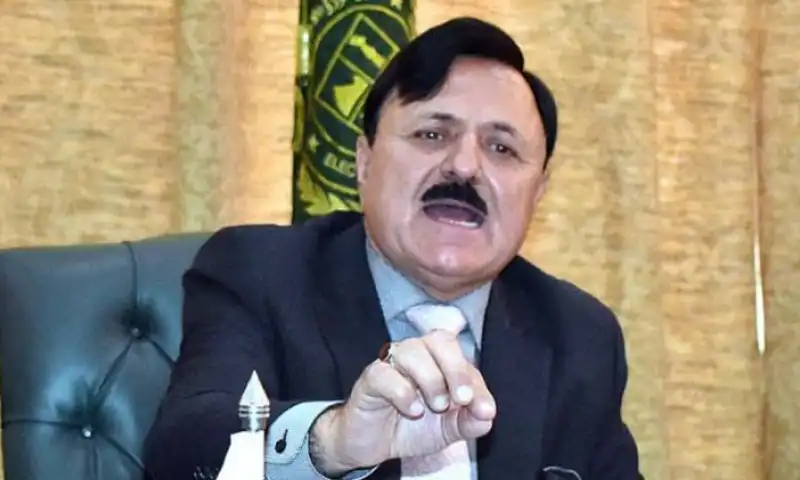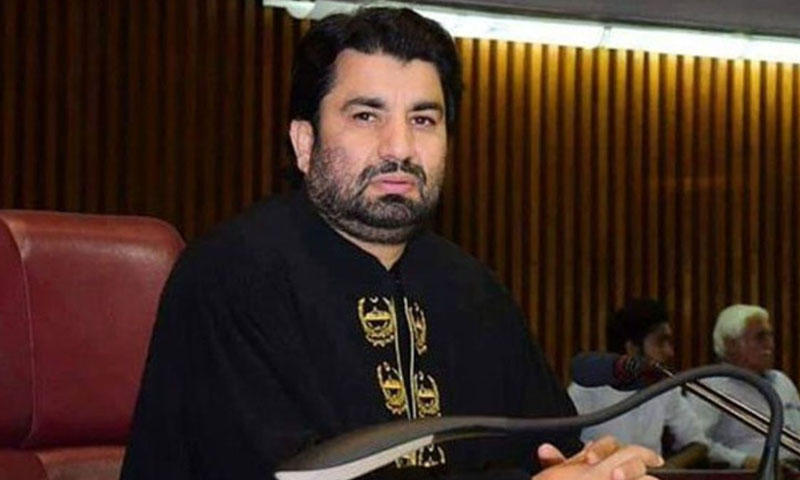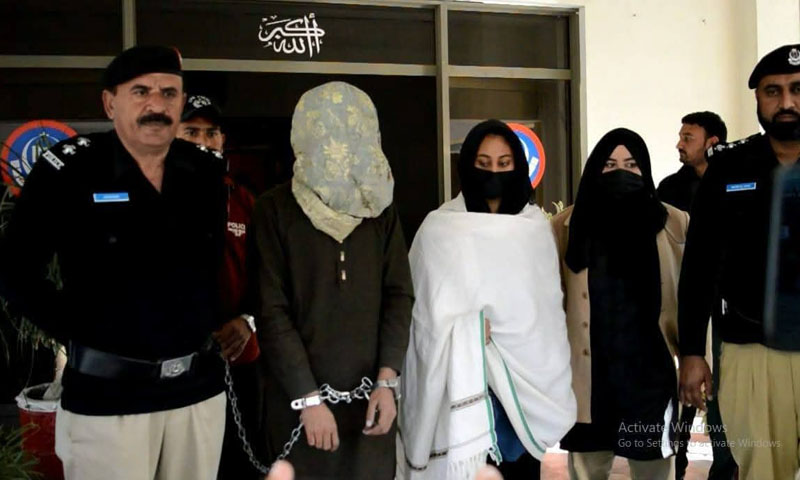- Web Desk
- Feb 09, 2026
IHC moved against reappointment of G-B chief election commissioner
-

- Tanveer Abbas
- Mar 14, 2025

GILGIT: The Islamabad High Court (IHC) has admitted a petition challenging the reappointment of Raja Shahbaz Khan as Gilgit-Baltistan (G-B) Chief Election Commissioner (CEC) and issued notices to the respondents.
Petitioner Advocate Mastan Wali Khan named Prime Minister of Pakistan as Gilgit-Baltistan Council Chairman through his principal secretary, Ministry of Kashmir Affairs, Gilgit-Baltistan and Safron through its secretary, Gilgit-Baltistan Governor through his secretary and G-B CEC Raja Shahbaz Khan respondents in the case.
The petitioner contended that Raja Shahbaz Khan was initially appointed as G-B’s chief election commissioner through a notification dated July 30, 2019, for a three-year term, which ended on July 30, 2022. However, he was later reappointed for an additional five-year term through a notification dated February 21, 2024, effective from July 31, 2024.
Talking to HUM News English by phone call, Advocate Khan alleged that upon the expiry of the three-year term, Raja Shahbaz Khan “illegally” held office for over two years until his reappointment, without any legal cover.
Jinnah Hospital: Six doctors face disciplinary action
The petition argued that the term or tenure of the chief election commissioner of Gilgit-Baltistan had not been specified in the original appointment order of Raja Shahbaz Khan dated July 30, 2019, which, according to the petitioner, violates the law and creates an ambiguity benefiting the CEC.
The plea maintained that the reappointment violates the Gilgit-Baltistan Chief Election Commissioner (Terms and Conditions) Order, 2014, which stipulates a three-year tenure with a possible one-year extension. The petitioner claimed that granting a five-year extension exceeded the legal limit and was, therefore, unlawful.
Wali Khan cited Section 5 of the G-B Chief Election Commissioner (Terms and Conditions) Order-2014, which states: “The Chief Commissioner shall hold office for a term of three years from the day he enters upon his office, and the term of Chief Election Commissioner may be extendable for a further period of one year by the Chairman [of G-B Council].”
The petition argued that the reappointment, carried out on February 21, 2024, during the tenure of the caretaker federal government, was against the mandate of an interim government as stipulated in Section 230 of the Election Act 2017. The plea also referenced a Supreme Court ruling in the Khawaja Muhammad Asif case (2013 SCMR 1205), which restricts an interim government from taking policy decisions of permanent character.
Cybercrime soars: 1.8M women victimised in Pakistan
“The Chief Election Commissioner appointed under the provision of the Government of Gilgit-Baltistan Order-2018 (if still operative) and Governance of Gilgit-Baltistan Reforms 2019 by the Caretaker Prime Minister, without consultation with the Chief Minister and the Leader of the Opposition in the G-B Assembly, cannot be sustained in the eyes of the law,” reads the plea.
It further stated that the caretaker Prime Minister is only responsible for day-to-day affairs and cannot make long-term appointments, particularly one spanning five years, which has not even been provided for in the relevant laws.
The petition also raised concerns about Raja Shahbaz Khan’s eligibility, claiming that he lacks the necessary judicial experience required under the CEC (Terms and Conditions) Order-2014. It alleges that he was never part of the G-B judicial service on a regular basis and was instead appointed on a contract basis as an Anti-Terrorism Court (ATC) judge.
The petition noted that the Election Act 2017, extended to G-B in May 2020, grants the CEC powers equivalent to those of the Election Commission of Pakistan (ECP). The petitioner argued that allowing a single individual to exercise such broad authority in the absence of a full election commission violates democratic principles.
The plea urged the court to direct fresh appointments through a meaningful consultation process with the Chief Minister/Leader of the House and the Leader of the Opposition in the G-B Assembly to ensure free, fair, and impartial elections in the region.
Super Tax case: Parliament has authority to amend laws, says SC
When asked whether the IHC has jurisdiction to hear the case, Advocate Mastan Wali Khan stated that the Supreme Court, in a 2019 ruling regarding the G-B Order 2018, had directed that any directives issued from Islamabad could not be challenged in the Gilgit-Baltistan Chief Court. He explained that such matters must be heard only in a constitutional court.
Justice Khadim Hussain Soomro of the IHC has admitted the petition for hearing and issued notices to the concerned respondents.




